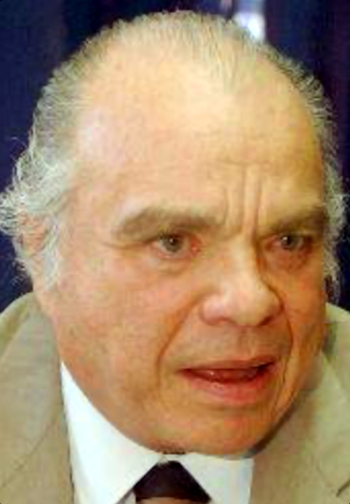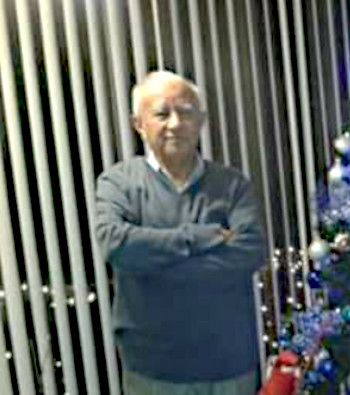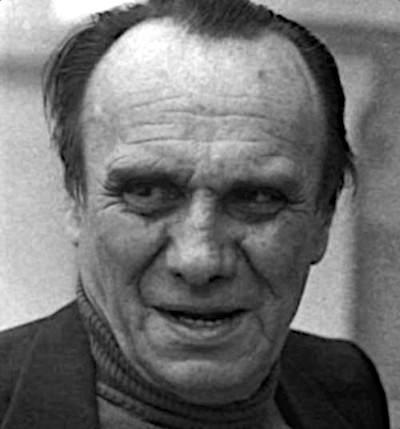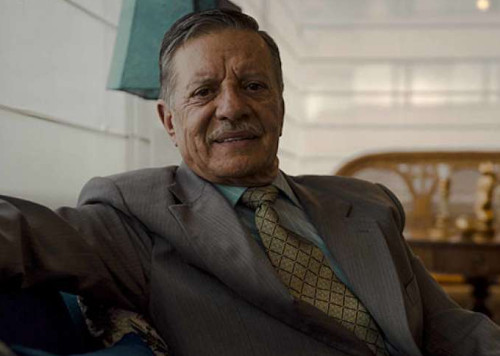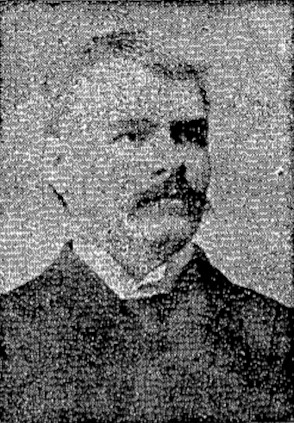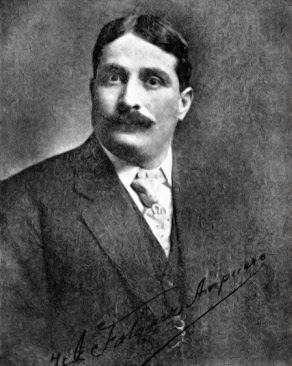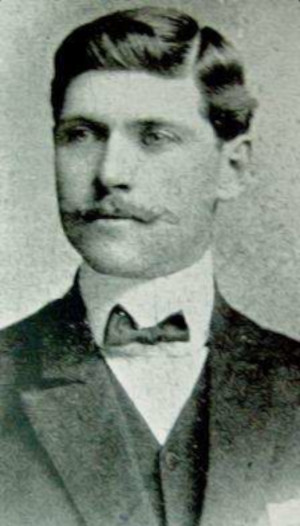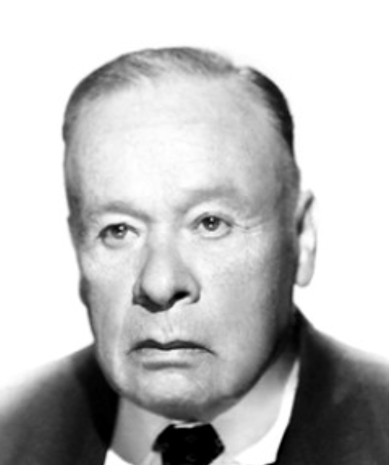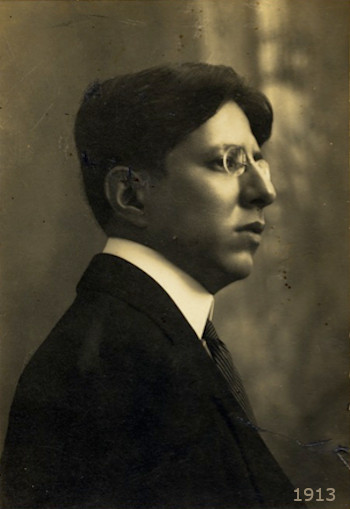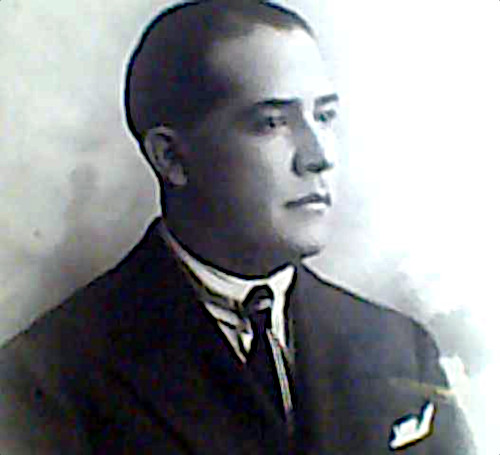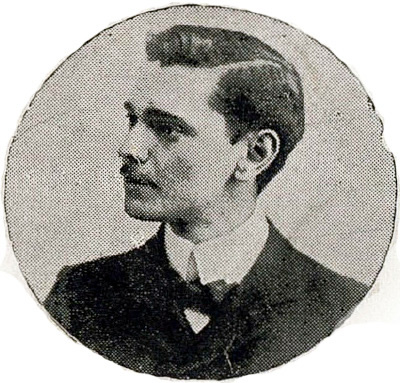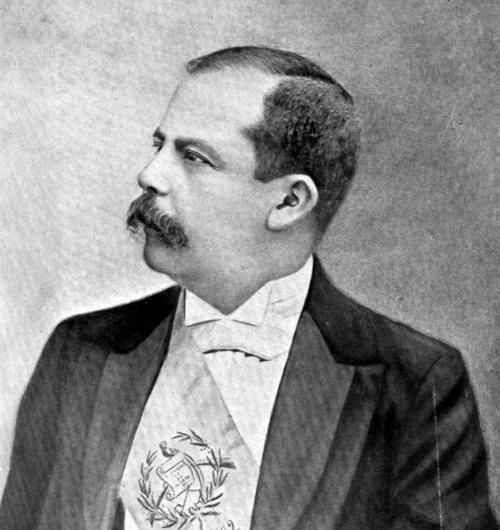Jaime Francisco Damerval Martinez (Guayaquil, November 19, 1940) is a lawyer, poet, essayist, journalist, columnist, university professor, political scientist, politician, former minister of the interior (2004) and former presidential candidate of Ecuador (2006). His poetry books include “Racimos” (1975) and “Mazorca” (1981). He also authored two book-length political essays: “Centralismo y regionalismo en el Ecuador” (1979) and “Monopolio político en el Ecuador” (2000), as well as collections of journalistic articles. He was an opinion columnist for the daily newspaper El Universo for over 20 years. In 2014 he became a member of the Guayaquil chapter of the Ecuadorian Academy of History.
Continue reading “Jaime Damerval”Category: 20th Century Writers
Nelson Jaramillo Mora
Nelson Jaramillo Mora (Zaruma, El Oro, Ecuador, circa 1930-2017) was an Ecuadorian writer and archaeologist. He worked as a professor of history and civics for over 35 years. Jaramillo Mora wrote short stories, essays, biographies, poems and books on history and archeology.
Continue reading “Nelson Jaramillo Mora”Antonio Lloret Bastidas
Antonio Lloret Bastidas (Cuenca, February 5, 1920 – November 5, 2000) was an Ecuadorian writer, journalist, critic and educator. He wrote several books of various genres: poetry, history, biography, fiction and nonfiction. From 1947 to 1960, he received several poetry awards, and in 1975, his novel “Los signos de la Llama,” which received praise from Jorge Luis Borges, won the House of Ecuadorian Culture’s novel competition. That same year, the Municipality of Cuenca awarded him the “Fray Vicente Solano” Cultural Award. In 1993, he joined the Ecuadorian Academy of Language. He was a founding member of the Azuay Union of Journalists and the Director of the Municipal Library. In 1993, Cuenca’s Municipal Council named him “Lifetime Chronicler of Cuenca.”
Continue reading “Antonio Lloret Bastidas”César Hermida Bustos
César Hermida Bustos (Cuenca, 1943) is an Ecuadorian doctor, university professor and novelist. He is the son of the writer Dr. César Hermida Piedra. He was a professor at the Central University of Quito from 1972 to 1993. Later he was an honorary professor there. In 2019 his novel Amoríos won the “La Linares” award. He returned to live in Cuenca in 2018.
Continue reading “César Hermida Bustos”César Hermida Piedra
Dr. César Hermida Piedra (Cuenca, 1912-2005) was a doctor, university professor, writer, poet and a historian of Ecuadorian medicine. He served as the Undersecretary-General of Health at the Ministry of Public Health in Quito. As a professor in the Medical Sciences Department of the University of Cuenca, Dr. Piedra taught “history of medicine.” His son, César Hermida Bustos, is an award-winning novelist.
Continue reading “César Hermida Piedra”Gonzalo Llona
Gonzalo Llona Marchena (Lima, Peru, March 21, 1864 – May 20, 1933) was a poet and journalist. He was the son of the famous Ecuadorian poet Numa Pompilio Llona. He was a staff editor of the newspaper El Telegrafo. He wrote the hymns of several schools, a labor union, the firefighters of Guayaquil and the Boy Scouts of Ecuador. In 1921 he published “Ecos del alma,” a collection of hymns and patriotic poems.
Continue reading “Gonzalo Llona”Francisco J. Falquez Ampuero
Francisco José Falquez Ampuero (Guayaquil, April 17, 1877 – Guayaquil, March 23, 1947) was an Ecuadorian poet, lawyer, diplomat, prosecutor, prose writer and French to Spanish translator. He was appointed Governor of León Province by President Eloy Alfaro (his godfather) and held various other public posts. His rich and extensive literary production includes verse, fiction and journalism. His sonnet collection, Gobelinos (1919), received praise from critics and literati, and is regarded as his best work. He participated in the movements that culminated in the bloody Revolution of November 15, 1922, hence the government of President José Luis Tamayo (1920 – 1924) ordered his exile to Lima, Peru, where he remained until 1923. He then returned to Guayaquil to practice law.
Continue reading “Francisco J. Falquez Ampuero”Alfonso Moscoso
Alfonso Moscoso Sánchez (Ambato, January 22, 1879 – Quito, June 26, 1952) was an Ecuadorian poet and history professor. He belongs among the first writers to use modernismo in their poetry. Graduated in jurisprudence, he held the positions of Minister of the Supreme Court of Justice, Deputy, and Private Secretary of General Leónidas Plaza during his presidency. Although few of his poems exist, they are masterfully written. A modest and simple man, he was always reluctant to publish his poems. Most of his production is found in the books Vidriecitos de colores (1945) and Azabaches (1951). His famous poems are: “Los Aserradores,” “Suspirillos germánicos,” “Saudade,” “El viejo de la esquina” and “Relieve.”
Continue reading “Alfonso Moscoso”Isaac J. Barrera
Isaac J. Barrera (Otavalo, February 4, 1884– June 29, 1970) was a writer, journalist, literary critic, historian, biographer and university professor. As a journalist, he founded several influential literary magazines and worked on the editorial staff of El Comercio between 1933-1955, authoring over 7,000 articles in this period. He wrote biographies on Vicente Rocafuerte and Simón Bolívar. He also authored book-length studies on Ecuadorian literature, the history of journalism in Ecuador, and colonial Quito. His best-known book is “Historia de la literatura ecuatoriana“ (1944; History of Ecuadorian Literature), which organized authors by genre and provided comparative analyses of their works, as well as an examination of the literary theories underpinning them. He was a member of the Ecuadorian Academy of Language. In 1973, a collection of his poetry was published posthumously.
Continue reading “Isaac J. Barrera”Miguel E. Neira
Miguel E. Neira was a modernist poet and journalist from Guayaquil, Ecuador. He became well-known with his 1907 book “Baladas de la Miseria” (Misery Ballads). His works were published in magazines like “Alto Relieves” and “El Guante,” a publication he helped to found. Transitioning to public administration, Neira eventually stepped back from the literary world. However, his literary efforts, especially through “El Guante,” significantly shaped modernist literature in Ecuador and supported the country’s intellectual independence from Spain.
Continue reading “Miguel E. Neira”Victor Hugo Escala
Victor Hugo Escala Camacho (Guayaquil, June 29, 1887 – April 30, 1964) was a poet, journalist, historian and diplomat. Along with Enrique Baquerizo Moreno and Manuel J. Calle, in 1907 he plotted an uprising against General Eloy Alfaro, which led to his imprisonment and exile. Upon returning to Guayaquil in 1909, he went to work for the literary section of El Telégrafo newspaper. His first poetry book “Motivos Galantes,” was published in Chile in 1915. After the 1918 armistice, he traveled to Paris where the great poet Ernesto Noboa y Caamaño served as his guide. One night they were invited to lunch at Gonzalo Zaldumbide‘s house, and the latter urged him to write. The outcome was “Kaleidoscope,” (1922) a travel journal with prints and landscapes of Europe and the East.
Continue reading “Victor Hugo Escala”Antonio C. Toledo
Antonio Clímaco Toledo Sánchez (1868-1903) was an Ecuadorian poet. His poetry was influenced by Romanticism and Neoclassicism. He has been compared to the Spanish poet Gustavo Adolfo Bécquer. In 1915 a posthumous collection of his poetry was published in a book titled Poesías, prologued by José Trajano Mera.
Continue reading “Antonio C. Toledo”Emilio Gallegos del Campo
Emilio Gallegos del Campo (Guayaquil, September 20, 1875 – May 15, 1914) was a poet, playwright, journalist and diplomat. In 1898 General Eloy Alfaro, who was a friend of his family and called him “Emilito,” appointed him Consul of Ecuador in London, a post which he held until 1901. In Europe, he was decorated by the French government with the Legion of Honor. Together with his brother, he founded several newspapers, including “América Modernista,” which published poets of the modernismo movement. His brother was the poet Joaquín Gallegos Del Campo whose son was the celebrated novelist Joaquin Gallegos Lara.
Continue reading “Emilio Gallegos del Campo”Nicolás Augusto González
Nicolás Augusto González Tola, also N.A. González (Guayaquil, April 14, 1858 – Buenos Aires, Argentina, January 18, 1918) was an Ecuadorian writer, playwright, novelist, journalist, poet, historian and diplomat. His plays in verse are among his best known works, which include, “Hojas secas,” “Entre el amor y el honor,” and “Amor y Patria,” which he co-wrote with Alfredo Baquerizo Moreno (President of Ecuador from 1916-1920). “Cuestión Histórica, el Asesinato del Gran Mariscal Ayacucho,” (written between 1887 and 1889), is perhaps his most important and controversial work, in which he accuses General Juan José Flores of being behind the assassination of Antonio José de Sucre, prompting hatred and persecution from Flores’ son Antonio Flores Jijón (President of Ecuador from 1888-1892). Due to his political views and polemic writing he was exiled to other countries, such as Peru, Colombia, Guatemala and Spain. From 1908-1913 he lived in Spain as a diplomat, and published there his poetry book, “Humo y cenizas” (1908) and his novel “La Llaga” (1908). He returned to Guayaquil in 1917 where a special committee chaired by José Luis Tamayo (President of Ecuador from 1920-1924) awarded him the “Golden Lyre”.
Continue reading “Nicolás Augusto González”Jorge Reyes
Jorge Reyes (Quito, 1905-1977) was an Ecuadorian poet, journalist, essayist and socialist. He directed the literary section of the socialist newspaper La tierra, and for many years he was an editorial staff writer for the newspaper El Comercio. His poetry books include: “Treinta poemas de mi tierra” (1926) “Quito, arrabal del cielo” (1930) and “El gusto de la tierra” (1977).
Continue reading “Jorge Reyes”
